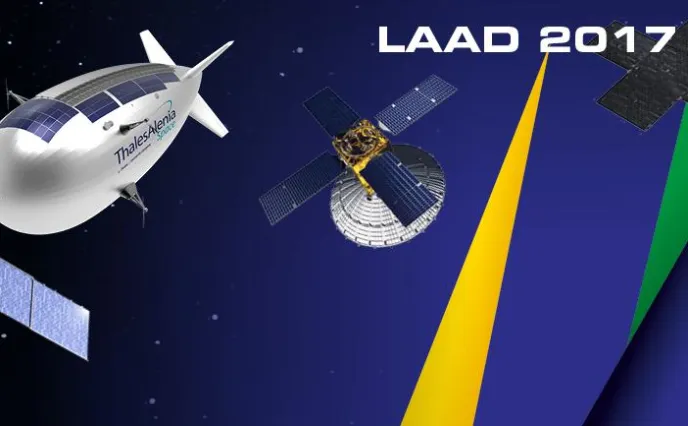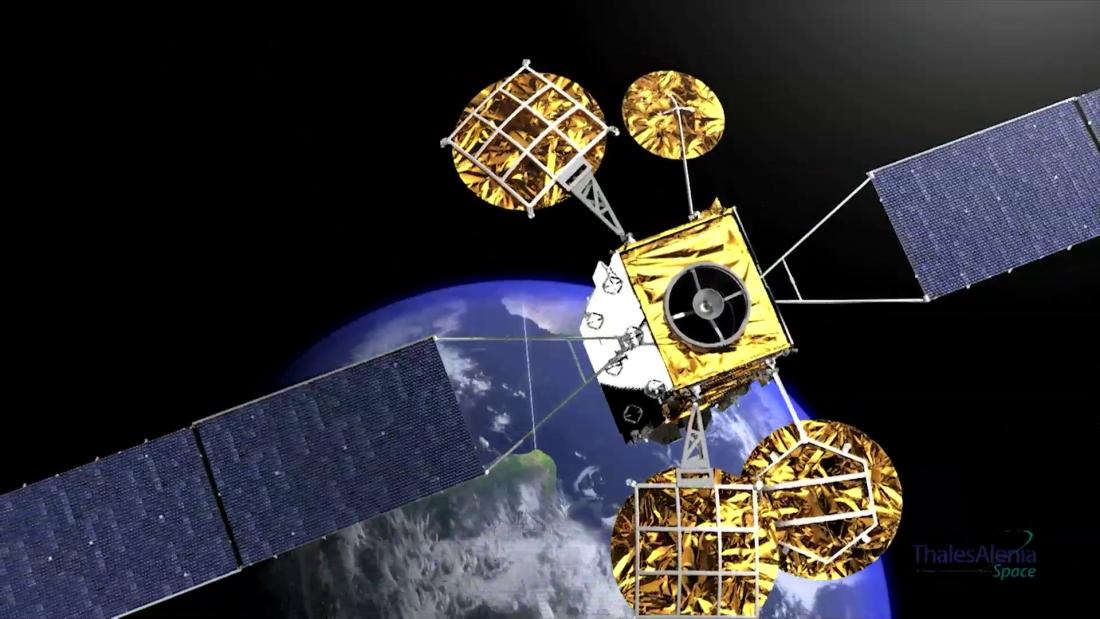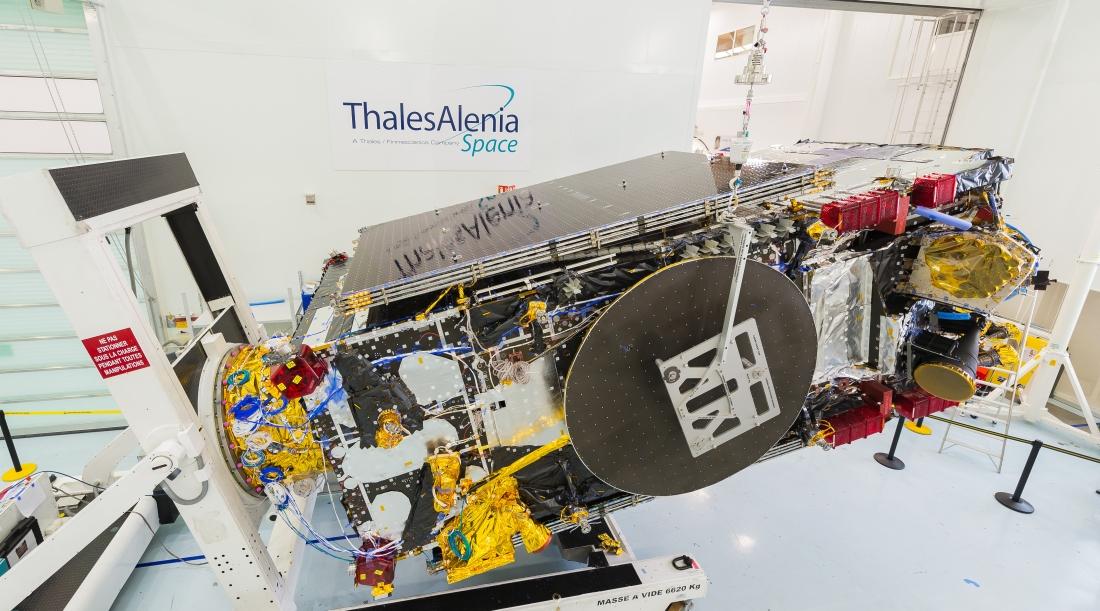Sous les projecteurs
Thales Alenia Space @ LAAD 2017

Thales Alenia Space will be at the LAAD international defense and security trade show in Rio de Janeiro from April 4 to 7, 2017. This well-known trade show and exhibition brings together companies from Brazil and around the world that are specialized in equipment and services for special forces, security services and government agencies. Thales Alenia Space will be showcasing its latest technologies for satellite telecommunications, Earth observation and Navigation. This event is also a perfect opportunity to review all the joint achievements by Brazil and Thales Alenia Space.
Thales Alenia Space and Brazil: looking back

In 2013, along with the contract for the SGDC dual telecom satellite on behalf of Visiona, the Brazilian space agency and Thales Alenia Space also signed a Memorandum of Understanding concerning an ambitious technology transfer plan. It is designed to help Brazil develop its own space industry.
What are the results so far in this win-win partnership with Brazil?
- The SGDC satellite was delivered to Visiona right on time, and will shortly be launched by Arianespace from the Guiana Space Center in French Guiana.
- Thales Alenia Space is now based at the San José dos Campos technology park in Brazil, to be close to customers and partners.
- The company has met its skills transfer commitment: more than 30 Brazilian engineers have been trained in all space engineering techniques, as part of the Thales Alenia Space program team.
- An aluminum battery support panel was produced by the Brazilian company CENIC for use on the SGDC satellite.

Thales Alenia Space: helping Brazil rise to the space challenge
Thales Alenia Space has identified the best solutions that meet Brazil’s needs for space telecommunications systems. The company has designed its new-generation telecom products, including the Spacebus NEO platform and VHTS [very high throughput satellites] for broadband connectivity, to cover a wide variety of needs. The Spacebus NEO platform is agile, flexible, scalable and modular, and is being offered in several versions, including one with all-electric propulsion. Three Spacebus NEO contracts have been signed since 2015 [DGA, Eutelsat, SES].

By capitalizing on its expertise in radar observation constellations [Brazil already uses images from Cosmo-SkyMed for its CENSIPAM program], Thales Alenia Space is able to offer solutions that address the country’s requirements for the surveillance of coastal and Amazon regions. The European company’s proven expertise in space altimetry could also prove very useful to monitor the height of waterways in the Amazon forest.
Thales Alenia Space is also offering an SBAS [Satellite Based Augmentation System] navigation solution, drawing on its experience with the EGNOS overlay system used with GPS. These augmentation systems are designed to improve GNSS (Global Navigation Satellite System) performance, for example by providing the civil aviation sector with a “Safety of Life” navigation service. With this type of system, airport infrastructures are no longer needed – which makes it a perfect solution to address the growth of air traffic in Brazil, as well as the increasing number of airports.

Given Brazil’s huge size [8,516 million square kilometers], the StratobusTM stratospheric airship could well provide an invaluable resource for regional telecommunications, observation and navigation applications. StratobusTM, a multi-mission, autonomous airship operating in the stratosphere, is a perfect complement to satellite systems. By combining optical and radar payloads, it can ensure permanent monitoring of a local zone, day or night and in any weather conditions. For example, StratobusTM is perfectly suited to maritime surveillance [anti-piracy], environmental management, surveillance of borders and high-value facilities, etc.

The technology transfer plan has proven to be a two-pronged success, benefiting both Brazil and Thales Alenia Space. Plans call for bringing more Brazilian companies into the follow-on SGDC-2 satellite, as equipment suppliers. The overall aim is to help Brazilian partners rise up the skills chain, in collaboration with Thales Alenia Space, so they can win new contracts, not only in Brazil, but in other countries as well. The success of this partnership will enable Brazil, in the medium term, to ensure its own sovereignty and independence in terms of space technologies.

Copyrights:
SGDC artistic view: © Thales Alenia Space/Master Image Programmes
Other artistic views: © Thales Alenia Space/Briot
Photo SGDC: © Thales Alenia Space/Imag[IN]

